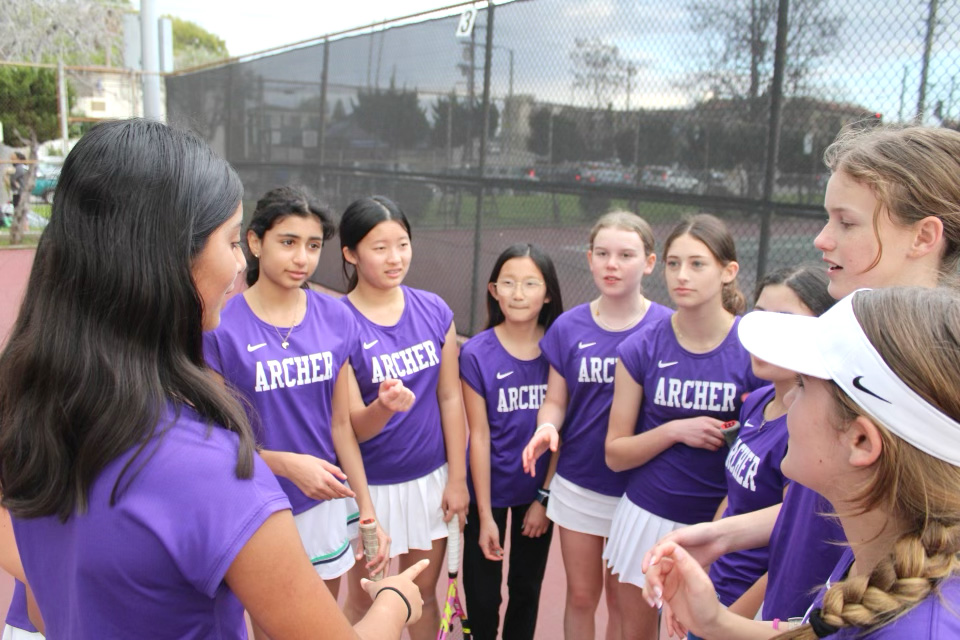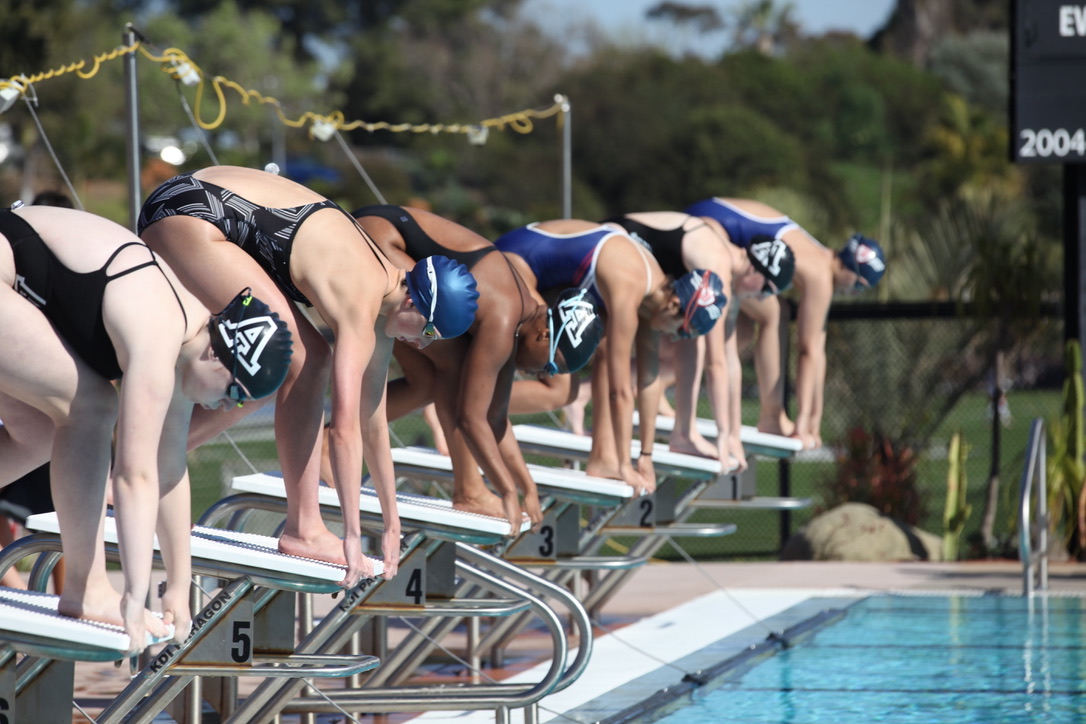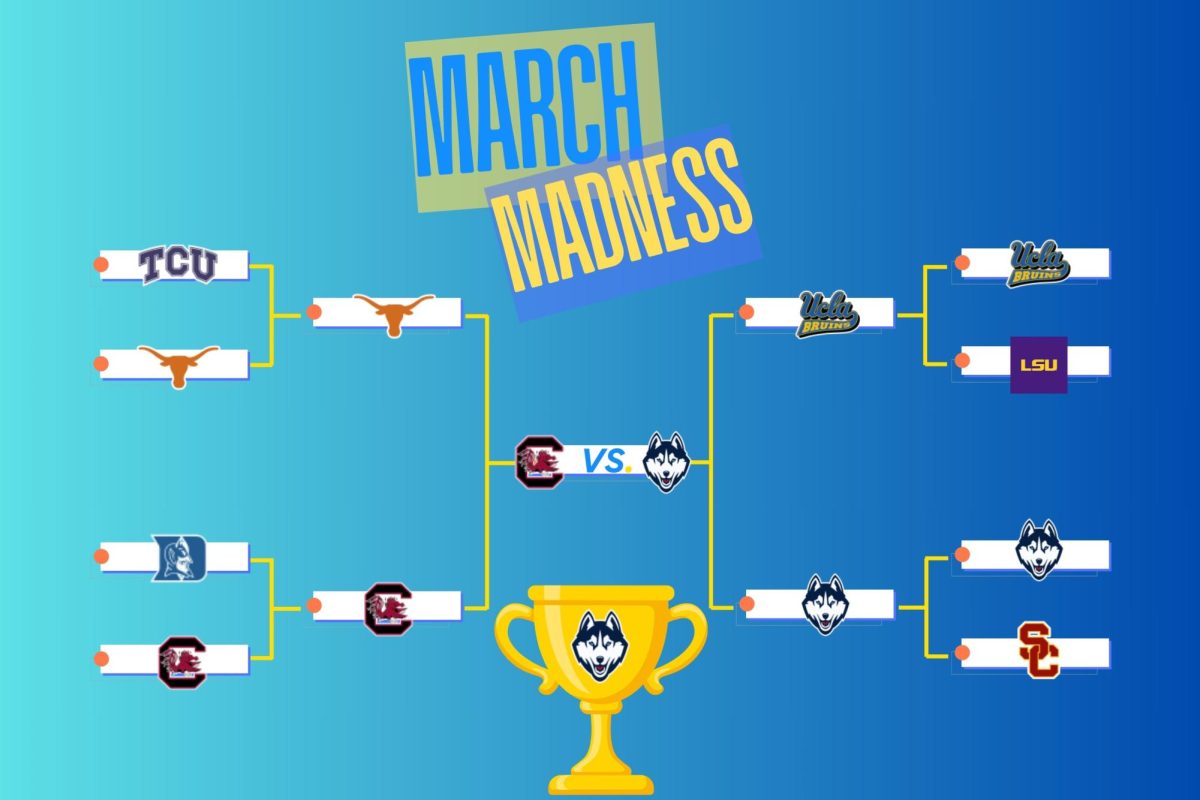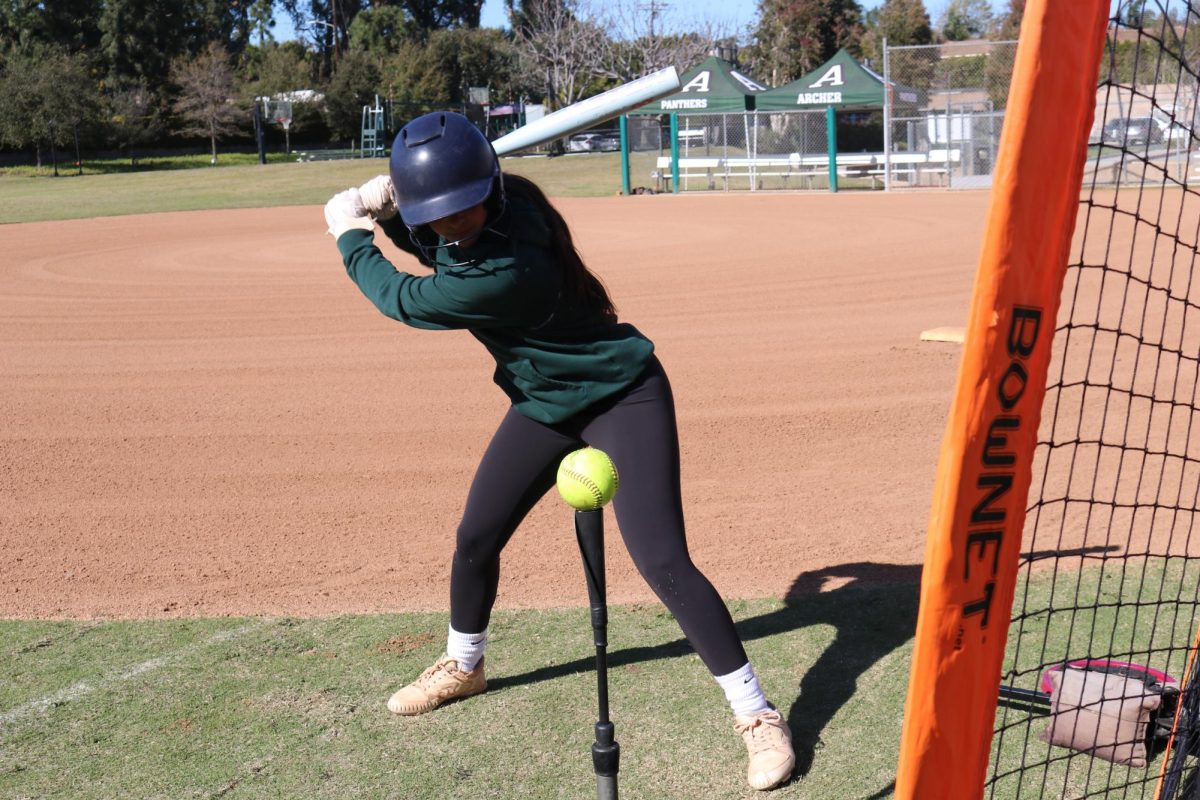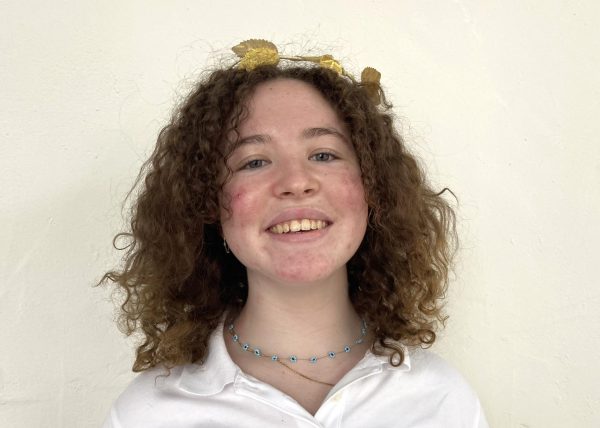Middle school tennis is the only sport at Archer where players participate in a coed league. Although they faced losses in the beginning of the season and unsportsmanlike conduct from their male opponents, Maggie Collins (’28) said the purple team does not let their challenges affect their positive energy.
Athletic Director Kim Smith wrote in an email to The Oracle that, due to limited access to training facilities and tennis courts, the middle school tennis teams compete in the spring in the coed league, while the JV and varsity tennis teams play in the fall against all-girls teams.
The purple middle school team played league matches, earning a season record of 1-3. They won their first playoff game and lost in the second round 6-0 May 1.
Head tennis coach Paula Feigenbaum said the team has created an extremely supportive environment, and she has noticed that their dynamic has helped each member persevere individually. In their match against Wildwood School, the score was tied at 3-3. However, since Archer won more individual games, they ended up defeating Wildwood School.
“The motto of the team is, ‘We start as a team and finish as a team,’ and they wonderfully display this motto at every match. This is where their team bonding comes into play by supporting each other,” Feigenbaum said. “We never give up during a match, and even if we lose a set, the games that they did win are instrumental in the overall count. That was best exemplified when we played against Wildwood.”
Throughout the season, Collins, Leani Al-Midani (’28) and Iris Seppala (’28) all said when they play in coed matches, their male opponents often display unsportsmanlike behavior on the court. Seppala described their behavior as “competitiveness that becomes rude and snarky.” Al-Midani described how many boys smashed their rackets on the court while playing, a form of racket abuse, and used explicit language towards her and her doubles partner.
In response to the unsportsmanlike behavior experienced this season, Smith partnered with other athletic directors to share a different messaging. In an email to The Oracle, Smith wrote that this message champions equality and breaks down the harmful gender stereotypes that undermine the value and capabilities of young women.
“When faced with female competition, boys are hearing that they should be faster or stronger, or win because they are boys. It was a great opportunity to shift the messaging away from gender to ability,” Smith wrote. “As a result, there was a more inclusive, supportive experience in the latter part of the season.”
Collins said she and her teammates try to not let their opponents impact their matchplay. She added that, at times, she feels pressure to combat gender stereotypes in sports.
“I feel like we always have that pressure to beat [boys] because [of] the stereotype that boys are better than girls,” Collins said. “They can be ruthless, and they just talk during points. Like, one point they served underhand when we were down. Serving underhand in tennis is a symbol like, ‘Oh, I’ll give you an advantage because I’m serving underhand, and we’re up, we’re winning, we’re better.’ It’s just rude.”
Al-Midani said, although she encounters this behavior in coed matches, she and her teammates have come up with tools to use as a team to not let it impact their energy. She added that because not all games are occurring simultaneously, she appreciates seeing her teammates on the sidelines of her matches, cheering her on.
“We have a little song. We have a little cheer that we sing and it just gets everyone hyped up and motivated instead, which I think is nice,” Al-Midani said. “Then when the boys are being rude— after we always talk about it and [we all] say jokes and it makes me feel better.”
Collins said, since this is her last year of middle school, she is focusing on enjoying the remainder of the season.
“Just to work on my mental game and not let the boys get in my head, and just to have fun, because it’s my last year in middle school,” Collins said. “I need to have fun with it and remember that it’s not always about winning. It’s about how you did in the match.”
Feigenbaum said that at the beginning of each season, she and the other tennis coaches always ensure the teams know what good sportsmanship, etiquette and court conduct looks like, especially as they are representing Archer as a school at their matches.
She added that she is proud of the team’s behavior on and off the court this season, even when they encounter unsportsmanlike conduct from other teams. Feigenbaum also said she is proud of the progress that the team has made this season, and she hopes the team sees all of their matches as learning experiences, no matter the outcome.
“Since I am the coach for high school also, what they learn in [middle school] will transition into high school and make it easier for future matches,” Feigenbaum said. “I tell the girls that every match tells a story, from beginning to end, and they need to identify what happened in their story in order to become better players.”



